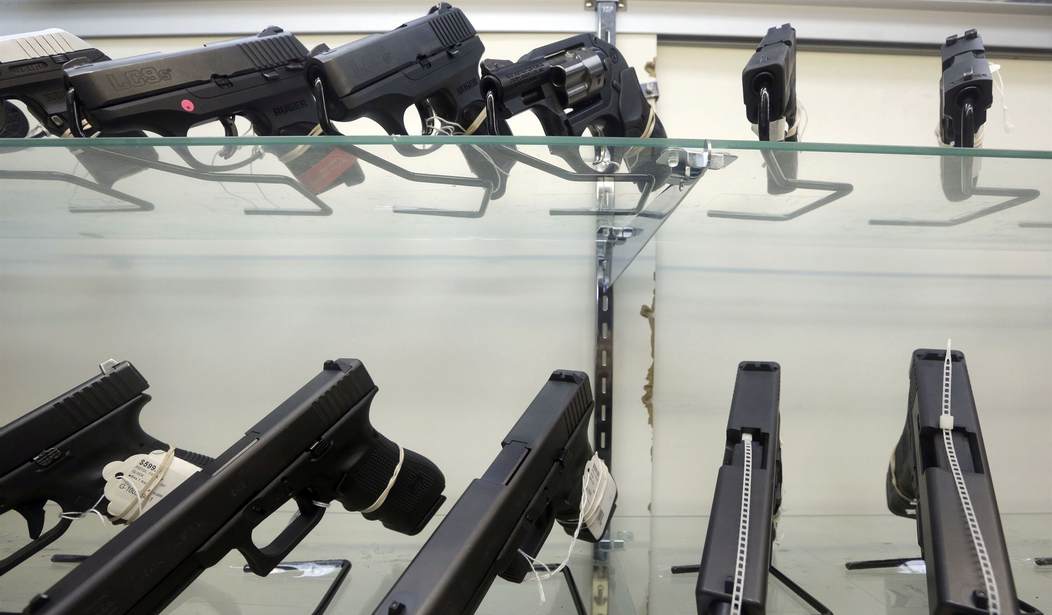A Lynchburg, Virginia judge has ruled that a new gun purchasing ban in the state violated a citizen's right to keep and bear arms, partially blocking the law from being enforced.
The new rule, enacted with a bevy of other strict anti-gun laws at the beginning of the month, effectively prohibited adults under age 21 from purchasing a handgun. The state already blocked adults between 18-20 from purchasing a firearm at a licensed gun store as required background checks were only offered to those 21 and older.
The new rule further implemented restriction on private sales, requiring purchasers to go through that same federal background check that prohibited adults under 21 from purchasing a gun. The plaintiffs in this Virginia case, Peter Elhert and Wyatt Lowman, contended that the new state restrictions violated their rights.
The laws, which have been hotly contended and drew protests of gun-owning Virginians to the state capitol in Richmond, went into effect on July 1. Lowman, who is 18, asserted that such restrictions forbade him from exercising his right to keep and bear arms, which is specifically protected in the constitution for the Commonwealth of Virginia.
The court's decision in this matter, Elhert v. Settle, made clear that by enacting and enforcing the new law, some Virginians were subject to restrictions that violated their constitutional liberties.
"Prior to the Act, those between the ages of 18 and 21 could purchase a handgun through only a private sale, not from a licensed dealer ... at this time, federal regulations and procedures mandate dealers who facilitate private transactions to first take the firearm into inventory and record it as an acquisition before transferring it to the buyer. In order to obtain a background check from the FBI's National Instant Criminal Background Check System, both the buyer's age and type of firearm are required; the NICS system automatically rejects handgun transfer to someone under 21 years of age.
Agreeing that adults under 21 years of age can no longer purchase handguns under the present setup, the Commonwealth deflects by saying the problem lies with federal law, not the Act ... During the hearing, the Commonwealth twice mentioned that it is working with the FBI to correct this problem. At the same time, the Commonwealth argues that 18-to-20-year-olds do not have a constitutional right to buy handguns because age-related firearm restrictions are presumptively lawful."
Recommended
The court further contended that Virginia could not constitutionally prohibit gun purchasers from buying specific types or categories of guns. The decision said such a restriction "is a prohibition, not a mere condition [of sales], infringing on the right to keep and bear arms and greatly reducing [the plaintiff’s] means of self-defense."
In the second matter in Elhert v. Settle, however, the court decided not to block the Commonwealth from enforcing the law, despite the plaintiff's contention that it was a violation of the right to bear arms. The implementation of background checks a the time of sale, whether by a dealer or a private seller, the court said, did not transgress the law in comparison to the Second Amendment of the U.S. Constitution. The court said that it would not block the Commonwealth from requiring background checks that would prevent felons or those with mental illness. Background checks then, whether commercial or private, were lawful so long as they were "limited to preventing a longstanding prohibition on a historically justified category."
Though a minor victory against the onslaught of restrictions against Virginians who want to keep and bear arms, it sets the stage for further legal action against the Commonwealth and Democrat Gov. Ralph Northam, who has vowed to go even further with gun restrictions in the future.

























Join the conversation as a VIP Member